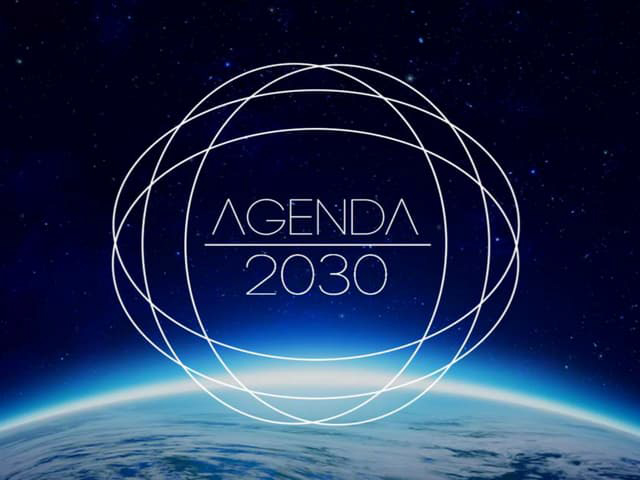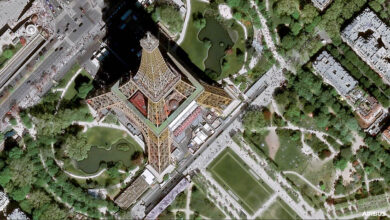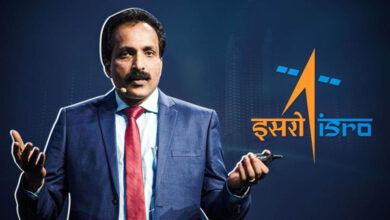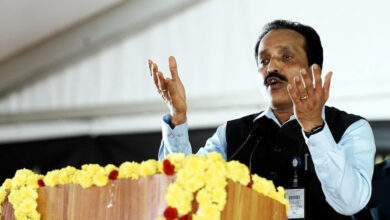Outer Space Must Be a Place for Peace and Cooperation, Not an Arms Race-United Nation Office for Outer Space Affairs
By R. Anil Kumar
-
Outer space must become an arena for international cooperation for global sustainable development, and not a theatre for an arms race
-
The international community set a remarkable record in space exploration last year, with 17 people simultaneously orbiting the planet
-
Outer space activity is intensifying, with numerous missions to the sun, the Moon, other planets and even asteroids. Space tools — such as satellite communications, meteorological satellites, navigation systems and earth observation technologies — are essential components of sustainable development
UNITED NATIONS, January 30. The Outer Space Committee of UN made progress last year in enhancing understanding of regulatory frameworks and mechanisms related to space cooperation.

The work of the United Nations Office for Outer Space Affairs and its instrumental role as the platform for multilateral cooperation laid stress on this topic.
The Office builds capacity in space law and policy, supports regional space science centres and maintains the United Nations Register of Objects Launched into Outer Space. Thus, it plays an important role in supporting Member States in fulfilling the objectives of the “Space2030” Agenda.
The Office has been stressing on the importance of preserving outer space as an arena for international cooperation, while outlining the many peaceful purposes for which space technology can be harnessed.
The access to outer space is an inalienable right of all States. Highlighting the possibility of an arms race in outer space, the fragility of the space environment and the increasing probability of collisions due to increased space debris, it urged the international community to synchronize outer space research with the implementation of Sustainable Development Goals.
In addition to developing legal frameworks that strengthen outer space governance, the international community must also focus on technology transfer and on capacity-building programs for developing countries it said.
The United Nations Office for Outer Space Affairs expressed concern about the militarization of outer space and the deployment of spy satellites. It Called on all States to cooperate in transferring space technology and building capacity.
The discussions on the peaceful use of outer space must not be politicized. The member States should refrain from using civilian space infrastructure for undisclosed purposes, while highlighting the growing trend of the use of civilian space systems, including commercial space systems, for other purposes. Such irresponsible behaviour can undermine the long-term sustainability of space activity.
International Cooperation is vital in the Peaceful Uses of Outer Space.
Space science, technology, law and policy are of utmost importance for attaining the Sustainable Development Goals and the 2030 Agenda for Sustainable Development.
The safety of space operations and sustainability of outer space activities are imperative for ensuring the continued viability of space assets in the future.
The activities undertaken by the United Nations Office for Outer Space Affairs (UNOOSA) and its mission of promoting international cooperation in the exploration and utilization of outer spaceis instrumental in discharging responsibilities under various UN treaties and principles on outer space and related resolutions, it maintains the United Nations Register of Objects Launched into Outer Space.
Recalling how, six decades ago, Valentina Tereshkova achieved a historic milestone as the first woman in space, the Office stressed upon increasing awareness of the importance of gender equality in the space sector, with more than 70 female space-farers following this path.
Also spotlighting bold commitments from both public and private actors to return to deep space, it underscored that space is a major driver of sustainable development. From satellite communications to meteorological satellites, from navigation systems to earth observation technologies, space tools are essential components in scientific research, environmental monitoring, global health and natural resource management.
Given this dependency on space systems, stronger international space cooperation and global governance of outer space is crucial.
This is especially necessary given the unprecedented rate of development of new space technologies and the increased diversification of space actors. The Scientific and Technical Subcommittee as well as the Legal Subcommittee and their respective working groups made progress in enhancing understanding of regulatory frameworks and mechanisms related to space cooperation.
Space traffic management and the mitigation of space debris are key issues.
The exploration and utilization of outer space must exclusively serve peaceful purposes and contribute to the socio-economic advancement of humanity without discrimination.
Preparations are under way for a dedicated workshop and an international conference to be held this year to advance the work on sustainability in outer space. The work of the Outer Space Committee and its Subcommittees, supported by the Office for Outer Space Affairs, is crucial in the collective endeavour for advancing the benefits of space activities for all.





